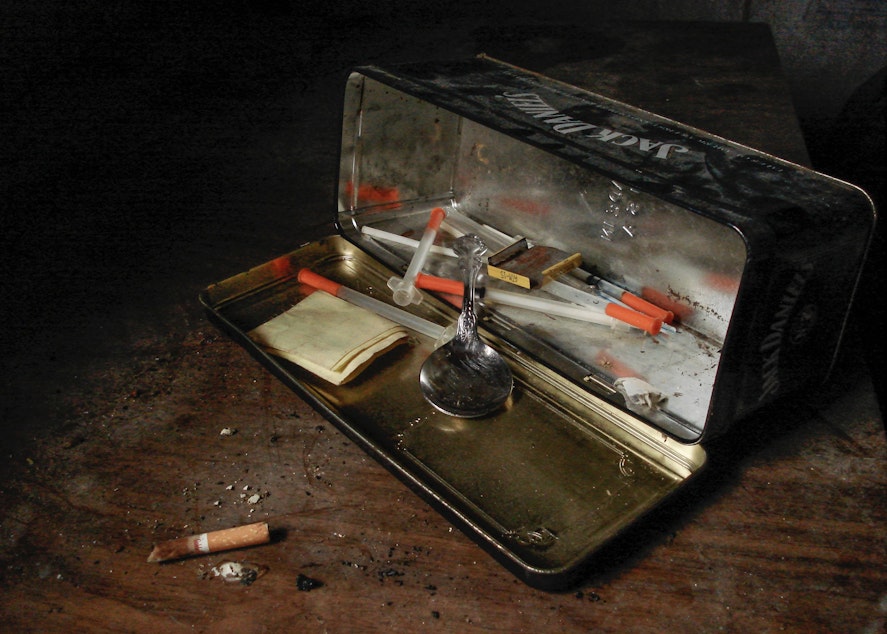Proposed bill would decriminalize drug possession, expand treatment resources in WA

Nearly a decade ago, Washington became one of the very first states to legalize the sale of marijuana for recreational use. Now, there is a proposal in the state Legislature that would decriminalize the personal possession of all drugs.
Currently, drug possession in Washington state is a felony. This bill would not only remove criminal penalties, but it would include funding for outreach, treatment, and recovery support for people struggling with addiction.
Democratic State Representative Lauren Davis represents Lynnwood, Edmonds, and Shoreline. She is the bill's sponsor and spoke to KUOW about the proposed law.
This interview has been edited for clarity.
What we're doing currently is not working. Individuals are not prompted into recovery vis-à-vis felony possession charges. What happens, truly, is that that felony possession charge ends up compounding their feelings of shame, and worthlessness, and being othered, and really increases the reasons that they want to use to mask that pain.
It also puts a stamp on their back of having a felony conviction, which then makes that recovery process infinitely harder in terms of trying to gain meaningful employment and housing once somebody does enter recovery. Instead, we need to replace it with this robust plan.
It's not enough just to remove criminal penalties. The bulk of the bill is really about the system that we're proposing and truly funding outreach, treatment, and recovery support services, which we've never done. If only we did, it would be wildly effective. It's just not the system we have today.
Sponsored
I believe in the entire continuum of care, from prevention to treatment of substance use disorder, and recovery. I fight fervently for all. To clarify, this is not legalizing in the way that we did with marijuana, where you're having retail outlets that are actually selling. This is really just about recognizing that what we have been doing, our response to the brain disease, has really been a failure.
It defies everything we know about recovery. We know that recovery is really rooted in hope. Recovery flows from a place of hope, and belonging, and somebody believing that a person is capable of more than their current circumstances. One does not find that in a correctional facility. They find that frequently in a peer.
Someone who is an employed recovery coach, who has walked their own journey and gotten out of the encampments, and gotten out of the correctional system, can take the hand of someone who is currently struggling and lead them out.
It has bipartisan support. Substance use disorder is not a partisan issue. I think there's universal agreement that what we're doing is failing. We've got to do more, not less. This proposal actually sets us on a pathway to strategically invest and use what we know works to bring people to recovery.
It is a misnomer that people don't want help. Rock bottom is very much a myth. The individuals that we're talking about don't hit bottom — they live on the bottom. They have lost just about everything that matters to a person. They've lost their dignity. They've lost their family. Many of them have lost children to the child welfare system. They've lost their homes.
What they need, what's missing in terms of their engagement and treatment, is not an inadequate amount of pain. It's an inadequate amount of hope. That's really the catalyst for recovery. Everything we know from research indicates that the opposite of addiction is not sobriety, it's connection. That is the cure. It's truly meeting and loving this population where they are. When you do that.
When you have the right message and the right messenger, and you have the resources to provide, people leap for that help. It's just that that's not the system we built. We don't offer those pathways to recovery. They don't exist in our current system.
We send people to treatment and then we drop them on their head. We release them back to the same encampment they came from and wish them luck. This is really about making sure, from soup to nuts, the entire continuum of care is robust, well funded, and that we never give up on people. The truth is not one among them has fallen too far to recover if only we'd give them a chance.
Listen to the interview by clicking the play button above.





